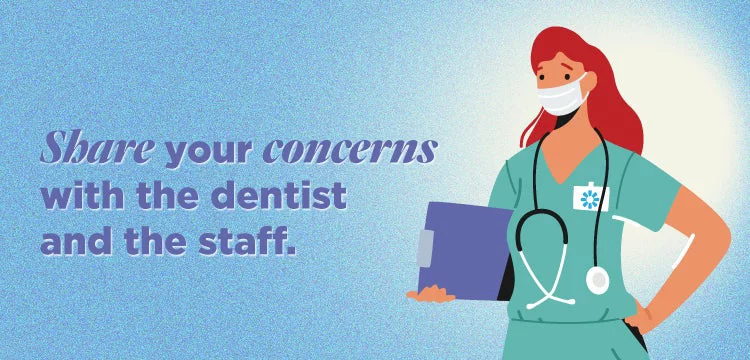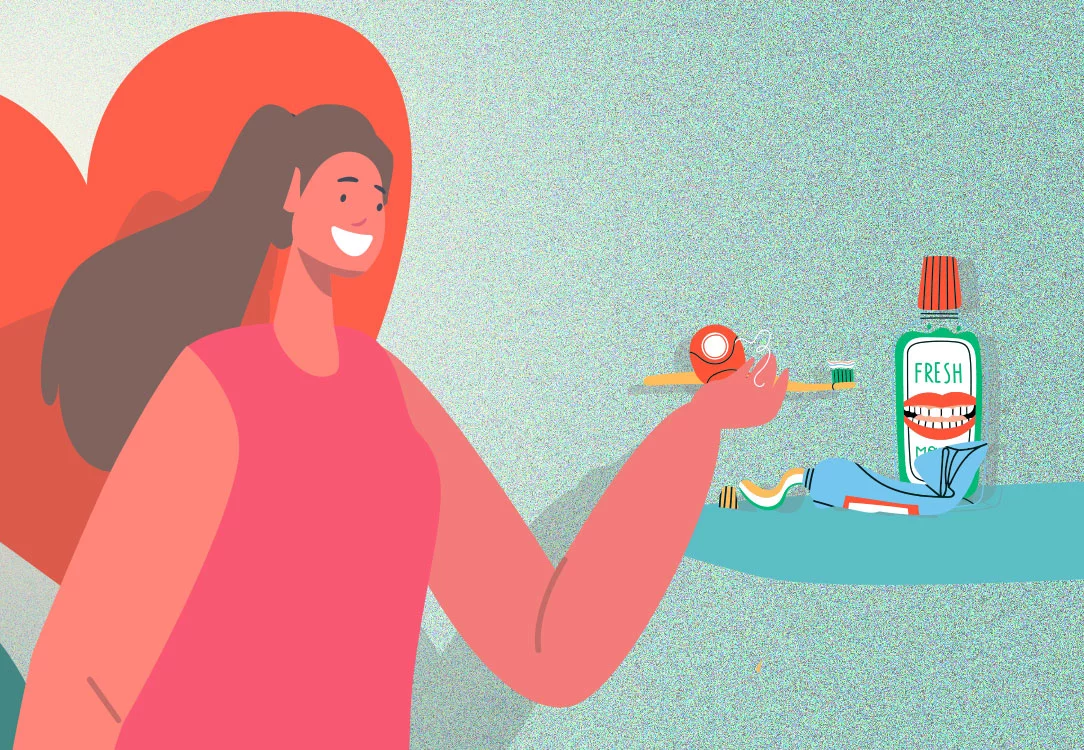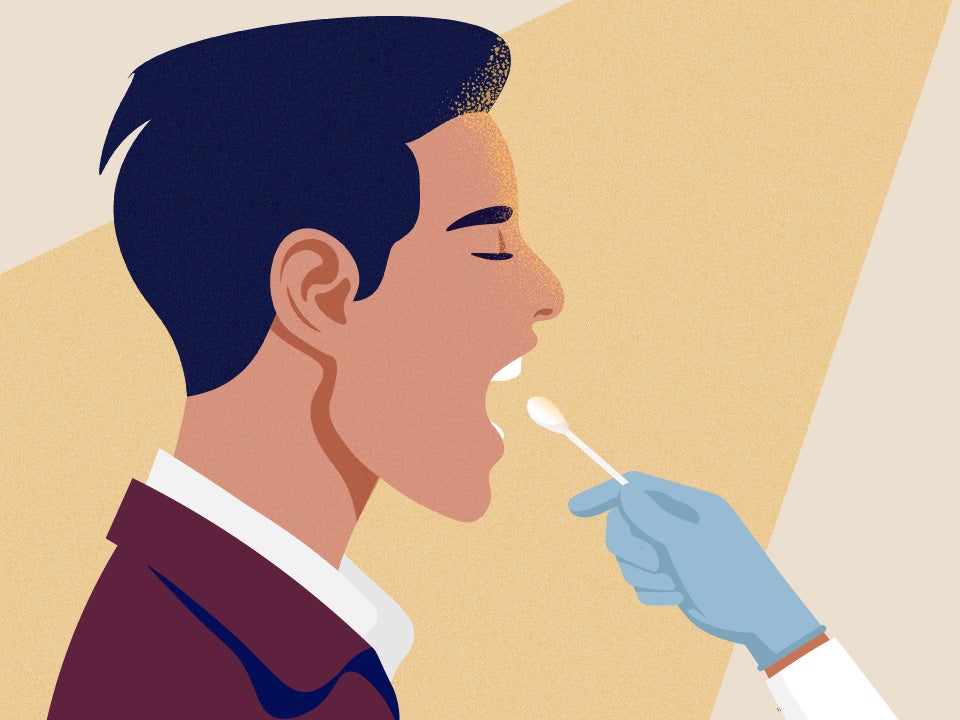Fear or Phobia?
Before figuring out how to break the vicious cycle of not going to the dentist, you need to know whether you have a dental fear or a dental phobia, otherwise known as dentophobia.
How Can I Get Over My Fear of Dentists?
Having regular cleanings and checkups is an important part of any good dental regimen. That helps keep your teeth healthy in the long run. Try implementing any or all of these tips to conquer your fear of dentist appointments.

Word of Mouth
Search Online
Share Your Concerns
Relaxation
Relaxation will play a critical role in having a positive dental experience. Try some simple tricks to make you calm. For instance, you can listen to music or an audiobook by wearing headphones. Or bring a stress ball to squeeze. Envision your happy place while squeezing the ball.
Why Should I Take Care of My Teeth?
Taking care of your teeth is just one part of your overall health. You eat healthy foods and exercise regularly to keep your cholesterol, weight, and cardiovascular health in check. The same holds true for your teeth.
Healthy teeth mean no cavities, no gum disease, and no dental procedures other than regular cleanings.
Dental Care is Self-Care
Many people hear the term “self-care” and think of exercising, taking a yoga class, or getting a massage. But you can practice self-care for the mouth too. Here are some ways to practice oral self-care:
- Hydration: Drinking water is great for your body – including the mouth. Water helps wash away food particles before they can become plaque. It also helps maintain your saliva flow.
- Keep teeth strong: This starts with eating a healthy diet and regular brushing and flossing. You can improve those habits by using toothpaste and mouthwash that contain fluoride. Also, try brushing with an electric toothbrush.
- Improve your smile: Keeping your teeth white with brushing and regular cleanings is great. But you can also discuss tooth whitening kits and processes with your dentist. Or, look into Invisalign if your smile isn’t quite as straight as you’d prefer.

Why Avoiding the Dentist is Worse
The Importance of the 6-Month Cleaning
Part of keeping your teeth healthy is having your teeth professionally cleaned every six months. But that dental visit is so much more than just polishing teeth to a brighter shade of white.
- Cavity detection: Your dentist will give your teeth a thorough exam when looking for cavities. If found early enough, cavities are easier and less expensive to treat.
- Check your fillings: If you already have a cavity or two, your dentist will want to check their condition. Any loose or decaying fillings will need treatment.
- Gum disease detection: Like cavities, the earlier gum disease is found, the better. Gingivitis, the initial phase of gum disease, can be reversed before it morphs into gum disease. Left untreated, gum disease can cause tooth loss.
- Oral cancer detection: Cancer can strike most parts of the body, including the mouth. Your dentist will inspect your mouth for signs and symptoms. This is critically important if you use tobacco.
- Dry mouth and bad breath: Patients might not realize they have either condition. Your dentist can diagnose and treat both.
- Discuss mouth health regimen: It is always a good idea to talk to your dentist about what you do daily to keep your teeth healthy. Your dentist can offer suggestions or alter your program too.
- Protect overall health: Gum disease has been shown to be linked to serious health issues such as heart disease and diabetes.
- Protect your family’s health: Kids need regular checkups too. Tooth decay is one of the most common afflictions among children in the U.S.
Find a Dentist Near Me
Consult your dentist about your fears regarding dental appointments, how to break the cycle of skipping appointments, and why oral care is so beneficial to your health. Or, check out The Smile Generation to find a dentist near you for all your oral health needs. You can read patient reviews, peruse staff bios, and schedule an appointment online with a click of your mouse.
Find your trusted, local dentist today!
Sources
- Colgate. (n.d.). Overcoming fear and anxiety at the dentist's office. Colgate. https://www.colgate.com/en-us/oral-health/dental-visits/do-you-fear-going-to-the-dentist
- Cigna. (n.d.). Why visit the dentist? Cigna. https://www.cigna.com/knowledge-center/why-visit-dentist
Smile Generation blog articles are reviewed by a licensed dental professional before publishing. However, we present this information for educational purposes only with the intent to promote readers’ understanding of oral health and oral healthcare treatment options and technology. We do not intend for our blog content to substitute for professional dental care and clinical advice, diagnosis, or treatment planning provided by a licensed dental professional. Smile Generation always recommends seeking the advice of a dentist, physician, or other licensed healthcare professional for a dental or medical condition or treatment.








